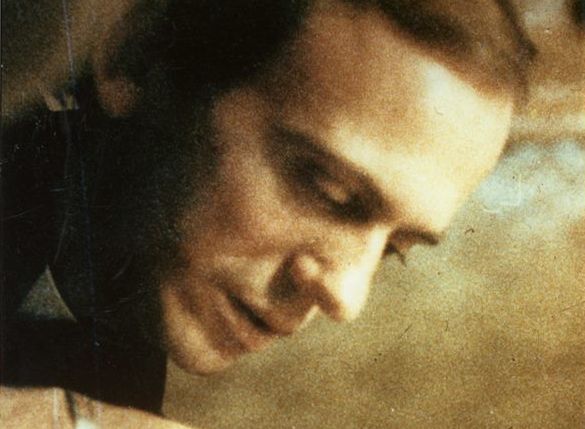Father Jerzy Popiełuszko, murdered in 1984, was beatified on 6 June 2010. The solemn mass in Piłsudski Square in Warsaw was celebrated by the delegate of Pope Benedict XVI, Archbishop Angelo Amato. Father Jerzy's mother – Marianna Popiełuszko also participated in the celebrations. Pursuant to the Pope's decision, the day dedicated to honoring Father Jerzy Popiełuszko is celebrated annually on October 19 – on the day of the priest's death.
"Violence is not a sign of strength but of weakness." – Fr. Jerzy Popiełuszko
Jerzy Popiełuszko was born in the family of Marianna and Władysław Popiełuszko as Alfons Popiełuszko in the village of Okopy near Suchowola in the Podlasie region on 14 September 1947. After graduating from high school, he joined the Higher Metropolitan Seminary in Warsaw, where the Primate of Poland Cardinal Stefan Wyszyński was the diocesan. Cardinal Wyszyński became an extremely important figure for the future priest. Popiełuszko tried to imitate the Primate’s attitude towards people. On 28 May 1972, he was ordained a priest at the hands of Cardinal Stefan Wyszyński. He celebrated his first Mass in Suchowola. Shortly thereafter, he became a vicar in the Holy Trinity parish in Ząbki near Warsaw, and then in Anin near Warsaw.
In 1978, Father Jerzy Popiełuszko was transferred to Warsaw's Żoliborz district to the Baby Jesus parish, where he taught religion to children. Shortly afterwards, he was transferred to the Res Sacra Miser chapel in Krakowskie Przedmieście Street in Warsaw, where he served as the pastor of medical communities. In May 1980, Father Popiełuszko became a resident in the St. Stanislaus Kostka parish, located near the center of Warsaw's Żoliborz – in Wilson Square (then called the Komuny Paryskiej Square). In the period of the strikes of August 1980, the St. Stanislaus Kostka Church became one of the most important gathering points for workers in Warsaw. Workers protesting in the Warsaw Steelworks wanted a Mass to be celebrated on the premises. None of the priests permanently working in the parish of St. Stanislaus Kostka could go there, so eventually Father Jerzy celebrated Mass for the workers.
On 13 December 1981, the last stage of the life and activity of Father Jerzy Popiełuszko began. From the imposition of Martial Law in Poland until his death, he preached numerous sermons and celebrated Masses for the Homeland. He touched upon themes of the need for truth, honesty and love of others in social life. This was dangerous for the authorities, because in his speeches he exposed the lies of the rulers. The simplicity of the priest's words radically differed from the language of the Party propaganda. He was also extremely hardworking. In addition to the Mass for his Homeland, in 1982 he initiated a pilgrimage of the workers of Warsaw Steelworks to Jasna Góra. This idea was transformed into the Polish Pilgrimage of Workers. Father Popiełuszko also joined the Primate's Committee for People Deprived of Freedom and their Families, and organized help for repressed “Solidarity“ activists.
Popiełuszko’s activity could in no way be accepted by the communist authorities. He was increasingly under surveillance by the Security Services. Unable to exclude him from pastoral activities by exerting pressure on his church superiors, the services began intimidation. His apartment was broken into twice. He was constantly being followed. Car accidents were set up, and his vehicle was damaged on numerous occasions. In the first half of 1984, he was interrogated thirteen times and arrested once. Organized attacks on the part of the press and mass media, orchestrated by the security and propaganda apparatus of the Polish People’s Republic, intensified.
On 19 October 1984, after a Mass at a parish in Bydgoszcz, on his way back to Warsaw, Father Jerzy Popiełuszko was detained, and then kidnapped and murdered by three Security Services officers who were members of the "D" (disintegration) Independent Group of Department IV of the Ministry of Internal Affairs. He was beatified in 2010.
